Shortly after the 2016 election, we discussed voting in the US and in our sister nations around the world. We noted the many initiatives being taken in the US to improve the way we vote in this country. We pointed out that other countries have much better turnout rates, in part because they offer different ways of enrolling voters, have shorter election seasons, and through other means.
The coronavirus pandemic has brought the voting issue front and center in a significant way: when voting tends to take place in person in close quarters, sometimes requiring voters to wait in long lines, lives may truly be at stake. 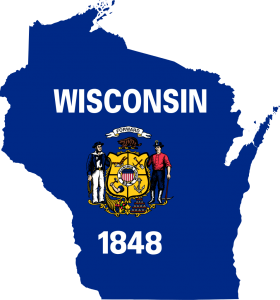 The Republican-leaning Wisconsin Supreme Court forced that state to hold an election in the midst of the pandemic, resulting in at least 50 cases of the virus among voters and poll workers. While that number is not a “spike” per se, it does indicate that many of those infected people could have remained disease-free had the election been postponed or if voting could have taken place through non-contact means.
The Republican-leaning Wisconsin Supreme Court forced that state to hold an election in the midst of the pandemic, resulting in at least 50 cases of the virus among voters and poll workers. While that number is not a “spike” per se, it does indicate that many of those infected people could have remained disease-free had the election been postponed or if voting could have taken place through non-contact means.
The controversy over how to vote in the new coronavirus world again brings up the spurious issue of voter fraud, which we discussed in September 2018. Conservatives are still fighting against mail-in balloting and other progressive measures by appealing to fraud and other baseless arguments. Officials and others who make the fraud argument are apparently afraid of what might happen if voter participation increases – more votes against them and for their opposition. As is often the case, Trump has actually said this out loud: he “told an interviewer on Fox News last month that ‘you’d never have a Republican elected in this country again’ if he agreed to Democratic proposals to expand voting options.”  While Trump did not elaborate on his comment during the interview, one can propose two possible trains-of-thought, according to the Washington Post: first, linking high turnout to Republicans losing elections (and linking that in turn to the false accusations of voter fraud); and second, “allowing more people to participate in the process legally would hurt [the GOP] because there are more Democratic-leaning voters in the country.”
While Trump did not elaborate on his comment during the interview, one can propose two possible trains-of-thought, according to the Washington Post: first, linking high turnout to Republicans losing elections (and linking that in turn to the false accusations of voter fraud); and second, “allowing more people to participate in the process legally would hurt [the GOP] because there are more Democratic-leaning voters in the country.”
A number of states and officials are actively opposing measures that would increase voter participation, including voter registration:
- Texas.
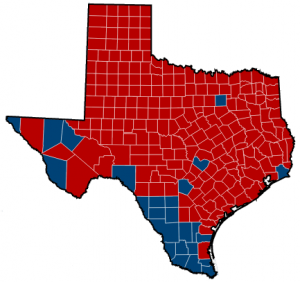 Texas is one of many states that restrict the use of absentee ballots; one must have a reason. At the request of the Republican Attorney General in early May, “The Texas Supreme Court . . . blocked a lower-court order that had allowed residents to vote by mail if they cite concerns about catching the coronavirus at polling places.” In effect, Republicans are forcing voters to choose between their right to vote and their health.
Texas is one of many states that restrict the use of absentee ballots; one must have a reason. At the request of the Republican Attorney General in early May, “The Texas Supreme Court . . . blocked a lower-court order that had allowed residents to vote by mail if they cite concerns about catching the coronavirus at polling places.” In effect, Republicans are forcing voters to choose between their right to vote and their health. - New Mexico. In mid-April, “the New Mexico Supreme Court ruled in favor of the state Republican Party and its opposition to a mostly all mail-in primary there.”
- Kentucky.
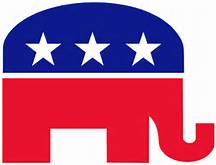 In March, the Republican-led legislature passed a law that would require “Kentucky voters to show an ID before casting a ballot, or else show a social security card or credit card and sign an affidavit promising they are who they claim to be. [The law] would have also created a way for people to get an ID for free at their local county clerk’s office.” Democratic Governor Andy Beshear vetoed the law. Opponents of the law like Beshear maintained that “the photo ID requirement will reduce turnout among minorities, the poor, the elderly and disabled voters.” The legislature subsequently overrode the veto.
In March, the Republican-led legislature passed a law that would require “Kentucky voters to show an ID before casting a ballot, or else show a social security card or credit card and sign an affidavit promising they are who they claim to be. [The law] would have also created a way for people to get an ID for free at their local county clerk’s office.” Democratic Governor Andy Beshear vetoed the law. Opponents of the law like Beshear maintained that “the photo ID requirement will reduce turnout among minorities, the poor, the elderly and disabled voters.” The legislature subsequently overrode the veto. - Nevada. “Exhibit A [of election-year legal battles over voting procedures] is a lawsuit filed by Democrats in Nevada [in mid-April] challenging the state’s plans to conduct a mostly all-mail primary on June 2 and to drastically limit in-person polling sites. Democrats say the moves — including automatically sending ballots only to voters who have taken part in recent elections, but not all registered ones — are an infringement of voter rights.”
- Alabama.
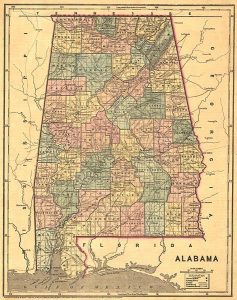 According to the Southern Poverty Law Center, “The state remains one of the most difficult places in the nation for an eligible voter to register and successfully cast a ballot.” Let us count the ways. Alabama lacks common practices that make it easier for registered voters to cast a ballot. The state, for example, only allows absentee voting, or vote by mail, for voters who have an excuse. Nor does Alabama offer in-person early voting. Furthermore, “the state passed a strict voter ID law, reducing to seven the kinds of photo ID it accepted – and beginning in October, the state will require a ‘Real ID,’ which looks like a normal ID with an added star symbol but requires more documentation to obtain.” As if that were not enough, Alabama “also tried to close down and heavily restrict the business hours of DMV offices, which is where residents can get a Real ID, and many of which happen to be in majority black counties.”
According to the Southern Poverty Law Center, “The state remains one of the most difficult places in the nation for an eligible voter to register and successfully cast a ballot.” Let us count the ways. Alabama lacks common practices that make it easier for registered voters to cast a ballot. The state, for example, only allows absentee voting, or vote by mail, for voters who have an excuse. Nor does Alabama offer in-person early voting. Furthermore, “the state passed a strict voter ID law, reducing to seven the kinds of photo ID it accepted – and beginning in October, the state will require a ‘Real ID,’ which looks like a normal ID with an added star symbol but requires more documentation to obtain.” As if that were not enough, Alabama “also tried to close down and heavily restrict the business hours of DMV offices, which is where residents can get a Real ID, and many of which happen to be in majority black counties.” - Mississippi. “Mississippi has some of the nation’s most restrictive voting laws. And Mississippi is one of only six states, according to Represent Us, a national non-profit promoting mail-in voting, to not have taken steps to make it safer to vote if the coronavirus is still a factor in November.”
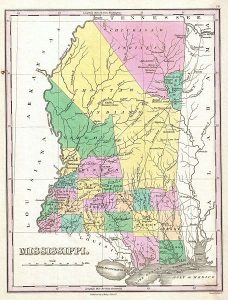 Republican Secretary of State Michael “Watson and many members of the Republican establishment believe that mail-in voting provides the opportunity for fraud. Most states take a different view. A recent poll conducted by Mississippi-based Chism strategies for Jackson’s Millsaps College found 54 percent of Mississippians believe people should be able ‘to safely vote by mail this November’ and more than 70 percent fear an election disruption.”
Republican Secretary of State Michael “Watson and many members of the Republican establishment believe that mail-in voting provides the opportunity for fraud. Most states take a different view. A recent poll conducted by Mississippi-based Chism strategies for Jackson’s Millsaps College found 54 percent of Mississippians believe people should be able ‘to safely vote by mail this November’ and more than 70 percent fear an election disruption.” - In GOP-controlled Montana, it’s the Ballot Interference Prevention Act (BIPA) that reveals legislators’ intentions. Despite the helpful-sounding name, the true intent of the Act – which is being opposed by the ACLU, the Native American Rights Fund and others – is to suppress the minority vote, especially that of Native Americans. BIPA began as a legislative referendum in the 2017 legislative session and ultimately qualified for the November 2018 general election. In that election, 63% of Montana voters voted “Yes” in support of BIPA, it became law, and its enforcement began with the first Montana elections in 2019. The main provision of the Act is “to end the practice of ballot collection efforts.” It imposes severe restrictions on who can collect ballots and how many ballots can be collected, which often conflict with Native family structures. Under the new law, ballot collectors are limited to just six ballots per collector; organizers would previously collect up to 100 ballots each. One begins to see why the Act is now being challenged in the courts. In Montana and especially on Indian reservations, there is often no other option to mail-in and absentee voting, since in-person voting can be very challenging logistically. There is a lack of public transportation; many Montanans have experienced discrimination when they finally arrive at distant county election offices; blizzards further hamper transportation and can begin in the fall; and satellite polling locations have proven insufficient to provide equal access to the ballots.
Many states already have robust procedures to ensure safe and fair elections and are in many cases even looking for better procedures. Bravo and thanks to them! But it is vitally important in a nation that depends on an engaged and aware citizenry that every legitimate vote count.
One thing that absolutely cannot happen, no matter what Donald Trump says or wants, is a postponement of the November election. 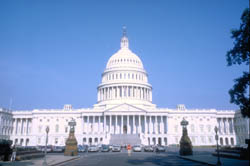 According to the Congressional Research Service, the US Constitution gives Congress (not the President) the power “to change the general election date and as well the dates electoral votes are received in Washington and counted in Congress. Such changes would require the consent of the House and the Senate and would be extraordinary since ‘the presidential election date has never been changed in response to an emergency.’” The US has held national elections during two other critical times in our history: the Civil War and the pandemic of 1918 (although in 1918, there were disruptions and a certain level of disenfranchisement).
According to the Congressional Research Service, the US Constitution gives Congress (not the President) the power “to change the general election date and as well the dates electoral votes are received in Washington and counted in Congress. Such changes would require the consent of the House and the Senate and would be extraordinary since ‘the presidential election date has never been changed in response to an emergency.’” The US has held national elections during two other critical times in our history: the Civil War and the pandemic of 1918 (although in 1918, there were disruptions and a certain level of disenfranchisement).
Furthermore, the Constitution “requires the president and vice president to end their terms of office on January 20 at noon in the year following the general election.” Trump has absolutely no independent authority to change that, and Congress is unlikely to make such changes.
If Trump continues to find himself lagging in the polls, he will undoubtedly cry foul as he repeatedly did during the 2016 election and claim that he is being treated unfairly. It is not beyond the realm of possibility that Trump and others in his circle will try to find ways to poison the electorate, promulgate vast untruths, slander opponents, and do other nefarious things that normal, decent people would not even consider. We must find workable, fair and safe ways to ensure that the November election – in every locale, in every state, in every US territory – takes place and that we can trust the results.

